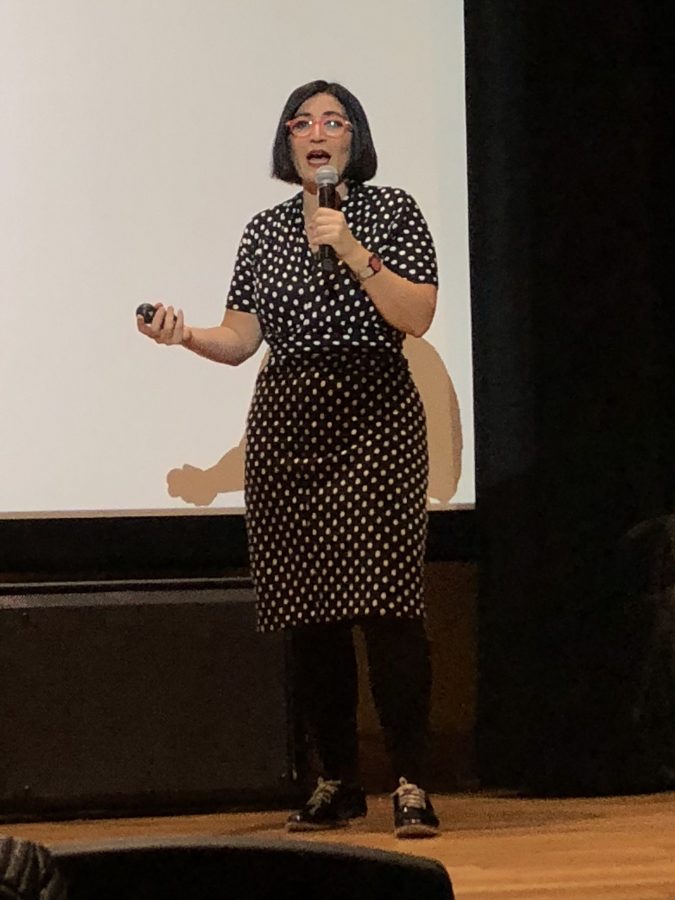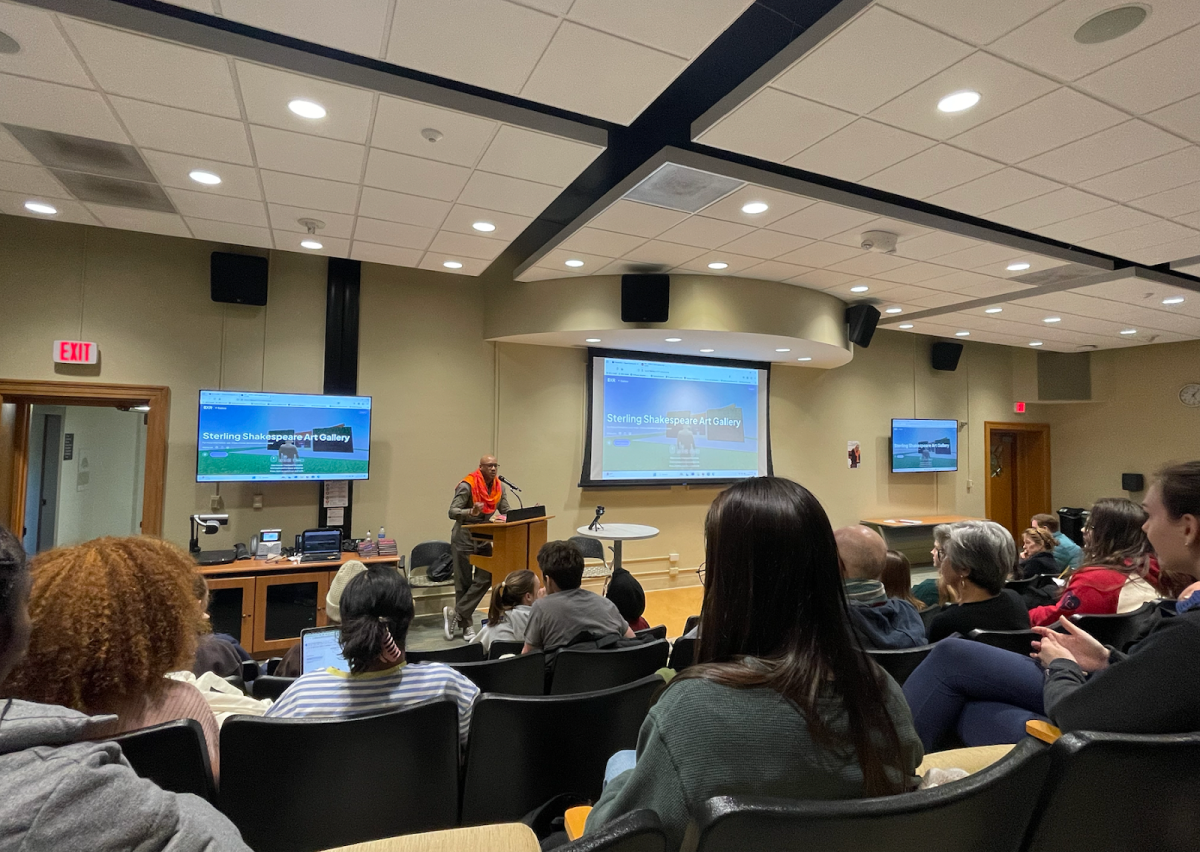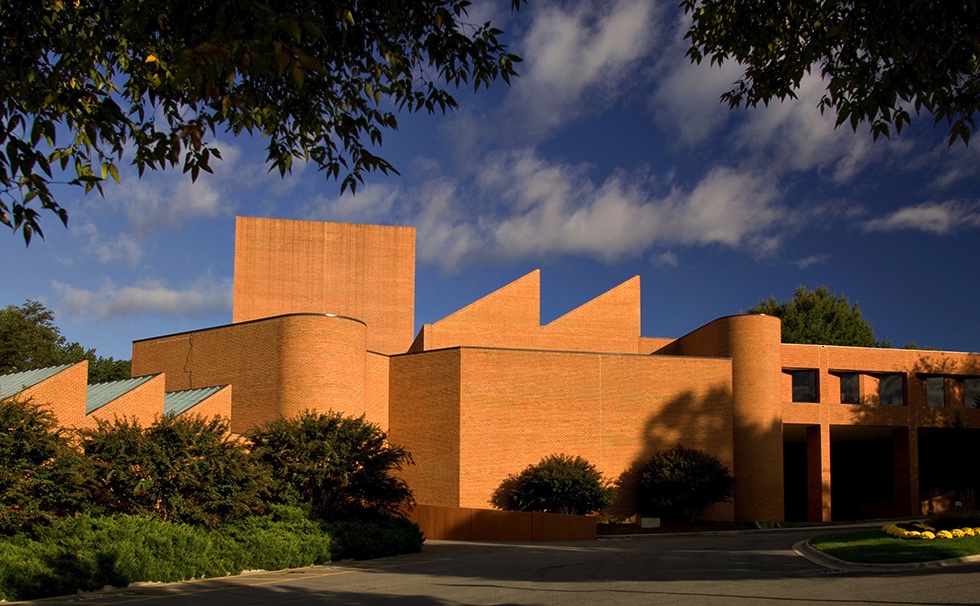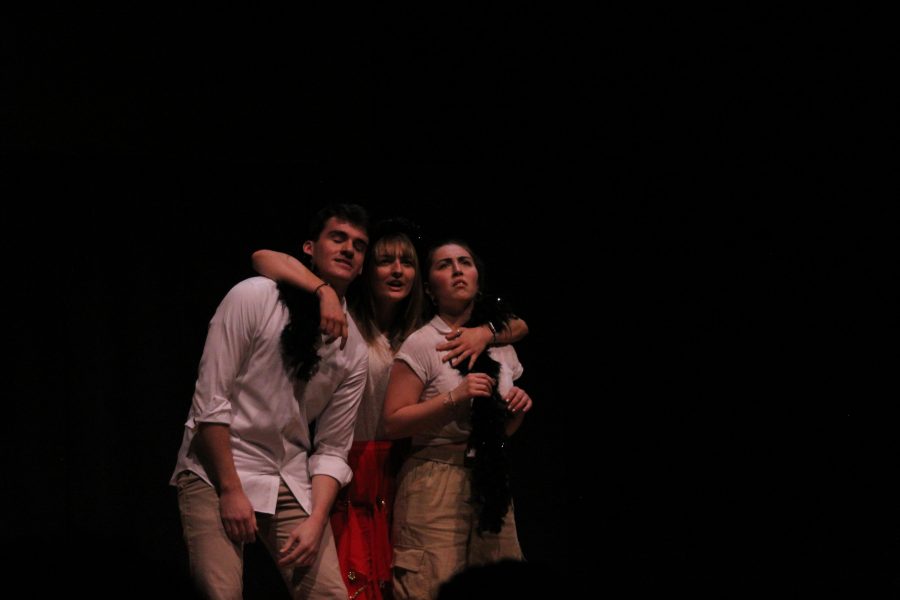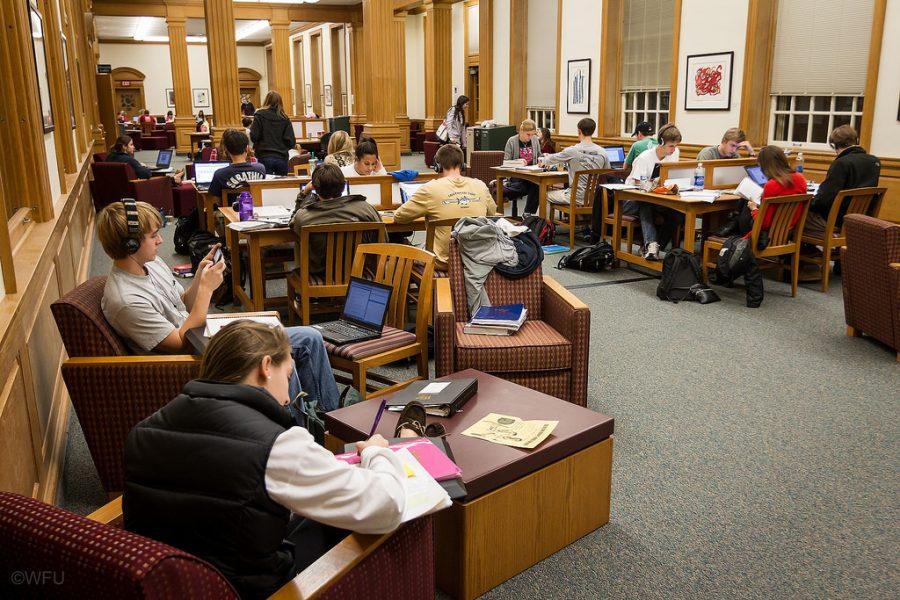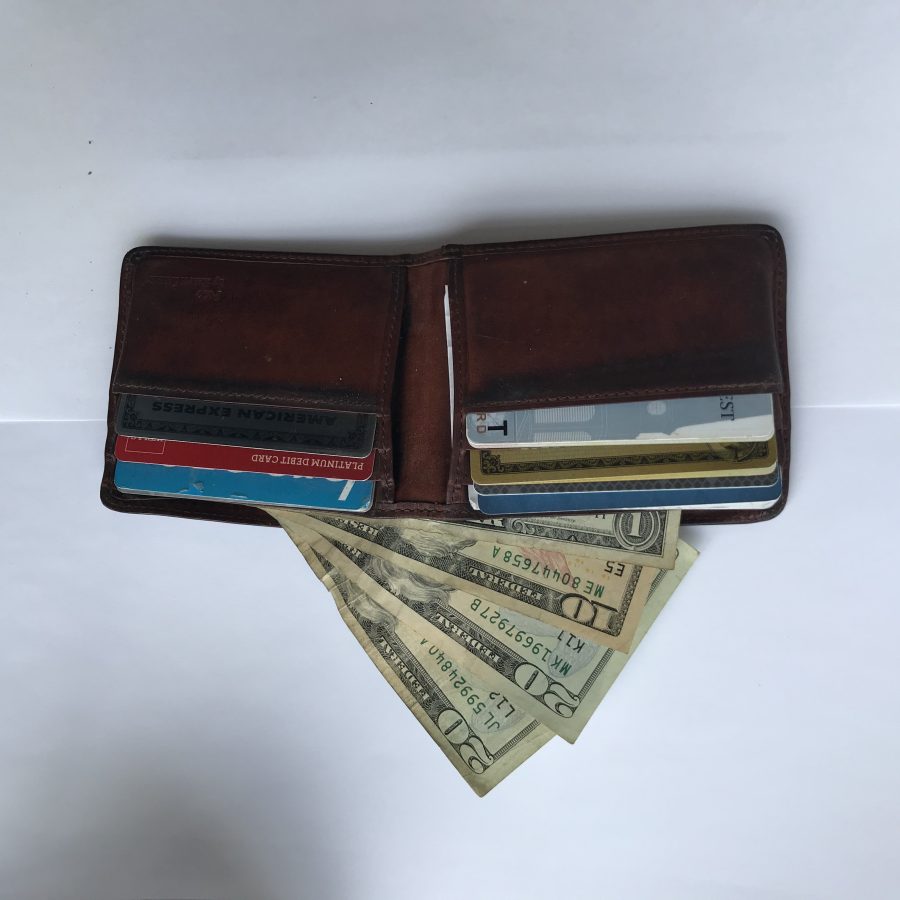On Wednesday night, people without a Valentine’s Day date did not find themselves alone. Instead of a romantic candlelit dinner for two, many people shared in the laughter of others. Pugh Auditorium was filled with people attending comedian Negin Farsad’s talk “Fighting Bigotry with Comedy: Notes from an Iconless American.”
Knowing the special date on which she was performing, Farsad even began her talk by joking how lonely the audience members must be. If they were there, they must not have a valentine, which was sad for the audience, but good for her. She said that maybe some of the men needed to wear more cologne — except for Muslim men, who should wear less cologne, because Muslims wear too much in an attempt to cover up the overwhelming smell of lamb.
But, getting serious, Farsad that she wasn’t there tonight to perpetuate stereotypes.
Speaking on the theme of stereotypes, Farsad said recounted a story: after being interviewed on MSNBC, someone tweeted at her that she “was clearly the Jew nerd on the panel.” To her, as an Iranian-American Muslim, being called a Jew felt like somewhat of an upgrade. Farsad called out the person, stating that she was “clearly the Muslim nerd on the panel.” That person wrote back, “No, clearly you’re a Jew-y McJew Face.”
Farsad thought it was hilarious that this person was so insistent that she was Jewish — how could they tell her what they she was? Farsad also sarcastically lamented that she was taking away that bigot’s anti-Semitism, but felt that Islamophobia was a good enough replacement.
Farsad said, “we don’t give [bigots] enough credit for being so specific.” That man wanted to target a Jew, and so he made Farsad a Jew — but also a little Irish by using the name “Jew-y McJew Face.”
In the end, Farsad just responded with a smiley face emoji. As she learned from the 2016 election, “when they go low, we go emoji.”
A more pressing issue for “hyphenated Americans” — those who also have another cultural heritage or hail from other countries — is iconography. Because hyphenated Americans are so weirdly specific, there are not a lot of people for them to look up to. And while icons are positive images, they create sticky situations in which people try to define themselves in the limited terms of those icons.
One way that she attempted to reconcile this problem, Farsad said, was to attempt to adopt other cultures throughout her life.
Farsad explained that Palm Springs, California, where she grew up, was comprised of three main populations: the old, the gays and the Mexican-Americans.
The teachers in her school could pronounce Mexican names with the perfect rolling of their R’s. As a result, Farsad wanted to have a Mexican name and be Mexican. Her childhood best friend, a Mexican-American, told her about a Mexican Thanksgiving tradition in which they ate a gigantic, single bean instead of a turkey. Farsad went around proudly stating this fact until she realized her friend had given her some fake news.
Farsad attended college in upstate New York where there were only white people as far as the eye could see. She toyed with the idea of whitewashing herself and attempting to pass as white, but she quickly realized that it was a bad idea.
“[There was] too much Dave Matthews Band involved for me to be white,” Farsad said, taking a jab at the musical epitome of white culture. “That’s when my black formation really began.”
Farsad began protesting segregated campus housing, taking classes in the African American canon of cinema, wearing Malcolm t-shirts, and quoting a “James Brown impersonator — Frederick Douglass.”
Eventually, Farsad moved on from using other culture’s icons. She learned that she, and other hyphenated Americans, need to adopt new icons. Calling on the media, and giving a nice shout-out to the Old Gold & Black (specifically my own cinnamon toast Pit hack from last week), she said they need to use minority voices, but not just to talk about minority voices.
Throughout her talk, Farsad also brought in the intersectional issues of feminism, interracial relations and social justice.
The entire hour that she spoke, Farsad had her audience in stitches. She often used impersonations, raising her voice to imitate a spoiled person or when she wanted to drive home the fact that she was making a joke. Farsad’s topics may be important and relevant — and at times, sensitive — but Farsad has the unique opportunity to use her status as a Iranian-American female comedian to teach the larger culture about racial and feminist issues.
Farsad’s talk was far from the normal, cut-and-dry talks that are typical of college campuses. That’s because she wasn’t giving a talk or a presentation or a lecture; she was performing.
Farsad captivated the audience with her jokes and made the audience members feel like they were watching one of Netflix’s many hour-long specials by a comedian. Who knows — maybe Pugh Auditorium will be the next main stage for a comedy show.



